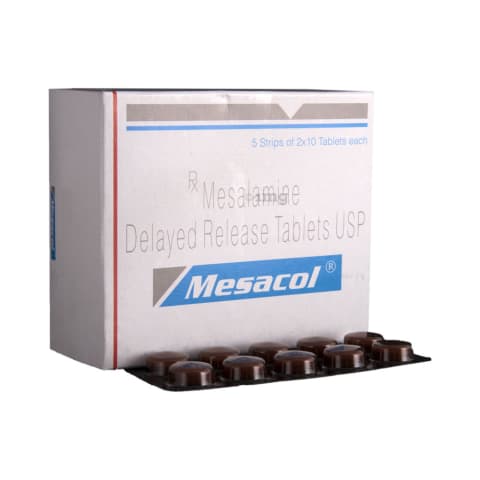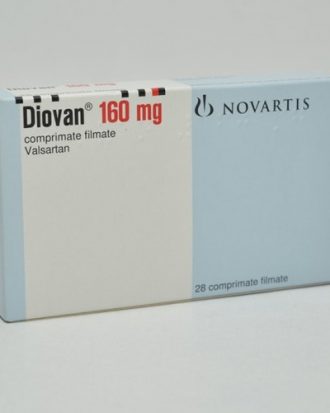Mesacol (Tab) 400mg
৳ 7.58
Indications
Therapeutic Class
Pharmacology
Although the mechanism of action of mesalazine is not fully understood, it appears to be topical rather than systemic. Mucosal production of arachidonic acid metabolites, both through the cyclooxygenase pathways, i.e., prostanoids, and through the lipoxygenase pathways, i.e., leukotrienes and hydroxyeicosatetraenoic acids, is increased in patients with chronic inflammatory bowel disease, and it is possible that mesalazine diminishes inflammation by blocking cyclooxygenase and inhibiting prostaglandin production in the colon.
Dosage
- Acute disease: 2400-4800 mg daily in divided doses for 6 (six) weeks.
- Maintenance therapy: The recommended dosage is 2400 mg daily in divided doses.
- Maintenance of remission of Crohn’s disease: 2400 mg daily in divided doses.
Child (5-15 year):
- Acute attack: 15-20 mg/kg (max: 1 gm) tid
- Maintenance of remission: 10 mg/kg (max: 500 mg) 2-3 times daily.
Paediatric: Safety and efectiveness has not been established.
Elderly: Because elderly patients are more likely to have decreased renal function, care should be taken when prescribing this drug therapy. It is recommended that all patients have an evaluation of renal function prior to initiation of Mesalamine tablets. Monitor blood cell counts during drug therapy.
Administration
Interaction
- Antacids: Because the dissolution of the coating of Apriso granules depends on pH, do not administer with antacids.
- Nephrotoxic agents (including NSAIDs): Increased risk of renal adverse reactions.
- Thiopurines (eg, azathioprine, mercaptopurine): Risk of leukopenia may be increased.
- Warfarin: Decreased anticoagulant effect of warfarin has been reported in 1 patient.
- Laboratory Test Interactions: None well documented.
Contraindications
Hypersensitivity to salicylates, aminosalicylates, or any component of the product.
Side Effects
Abdominal pain, diarrhea, flatulence, nausea, vomiting. Tab: Renal impairment, acute & chronic interstitial nephritis, renal insufficiency; exanthema, drug fever, bronchospasm, pericarditis & myocarditis, pancreatitis, allergic & fibrotic lung reactions including dyspnoea, cough, alveolitis, pulmonary eosinophilia, lung infiltration, pneumonitis, butterfly rash (lupus erythematosus syndrome), pancolitis; myalgia, arthralgia; aplastic anaemia, agranulocytosis, pancytopenia, neutropenia, leucopenia, thrombocytopenia; raised transaminase & parameters of cholestasis, hepatitis, cholestatic hepatitis; alopecia; reversible oligospermia. Enema: Allergic exanthema, drug fever; bronchospasm; lupus erythematosus-like syndrome. Granules: Headache, dizziness; pericarditis. Supp: Allergic skin rash, fever, breathing difficulty.
Pregnancy & Lactation
Pregnancy Category B. Either animal-reproduction studies have not demonstrated a foetal risk but there are no controlled studies in pregnant women or animal-reproduction studies have shown an adverse effect (other than a decrease in fertility) that was not confirmed in controlled studies in women in the 1st trimester (and there is no evidence of a risk in later trimesters). Excreted in breast milk.
Precautions & Warnings
- Hypersensitivity: Some patients who have experienced a hypersensitivity reaction to sulfasalazine may have a similar reaction to mesalamine.
- Renal Function: Patients with history of renal function impairment or disease may have worsening of renal function.
- Hepatic Function: Use with caution. There have been reports of hepatic failure in patients with preexisting liver disease.
- Sulfite Sensitivity: Some products may contain sulfites, which may cause allergic reactions in susceptible individuals.
Storage Conditions
Keep below 30°C temperature, away from light & moisture. Keep out of the reach of children.






Reviews
There are no reviews yet.